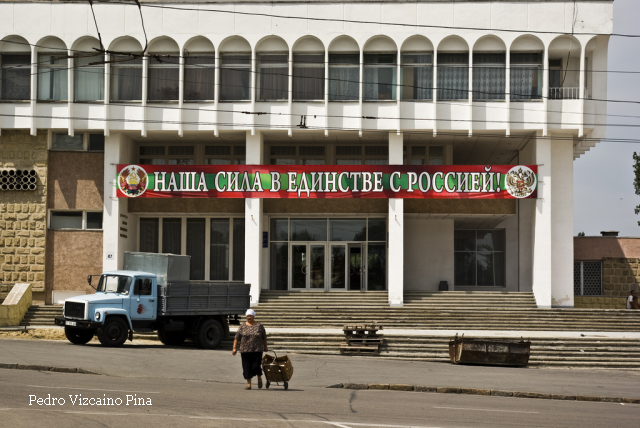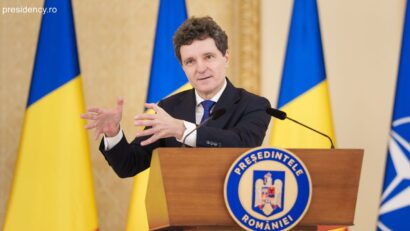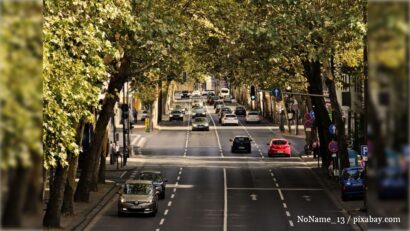Transdniester Separatism and Russian Expansionism
After Crimea’s annexation by the Russian Federation, tension lingers in the area. Donetsk, located on the eastern border of Ukraine, on Monday witnessed demonstrations during which the Ukrainian flags were replaced by Russian flags and the region was proclaimed a sovereign republic. The protesters decided to hold a referendum on the issue next month. Previously, Ukrainian Prime Minister, Arseni Iateniuk, had denounced a Russian plan regarding the break up of Ukraine.

Valentin Țigău, 08.04.2014, 17:09
After Crimea’s annexation by the Russian Federation, tension lingers in the area. Donetsk, located on the eastern border of Ukraine, on Monday witnessed demonstrations during which the Ukrainian flags were replaced by Russian flags and the region was proclaimed a sovereign republic. The protesters decided to hold a referendum on the issue next month. Previously, Ukrainian Prime Minister, Arseni Iateniuk, had denounced a Russian plan regarding the break up of Ukraine.
Regional instability is on the rise also at the border between Ukraine and the Republic of Moldova, namely in the break-away region of Transdniester, where, on Monday, the local leader Evgheni Sevciuk, suggested the extension of the Crimean precedent to Transdniester and called on the authorities in Chisinau to recognize the independence of that region with a majority Russian-speaking population. “Our dream is a thriving Transdniester alongside Russia” said Sevciuk against the backdrop of the announcement that the Transdniester authorities called for postponing the 5+2 meeting on the regulation of the legal status of Transdniester, a meeting that is due to take place in Vienna on April 10th and 11th.
In late March, Russia conducted military exercises in Transdniester where it still has troops deployed, after the bloody war of 1992 between Russia, Moldova and Transdniester, despite the repeated international appeals to pull out its troops. The former Russian general, Alexandr Lebed, warned some years ago, that the tanks of the Russian army in Transdniester could occupy Chisinau in a few hours and could also reach Bucharest equally fast.
In Chisinau, Moldovan President, Nicolae Timofti, expressed concern over a possible reiteration of the Crimean scenario, a scenario which the pro-Russian leaders in Gagauzia see repeated in that region of the Republic of Moldova as well.
In turn, Romania looks with concern at the tense situation at its borders with Ukraine and the Republic of Moldova. The President of Romania, Traian Basescu, said, at a recent meeting with his Moldovan counterpart, that Crimea was nothing but an episode of what is to come. Romania draws a warning signal as regards security risks in the Republic of Moldova. Romania has permanently supported the European integration efforts of the neighboring Republic of Moldova, with a predominantly Romanian-speaking population, which in June will enter a new stage through the signing of the Association Agreement with the EU.






























